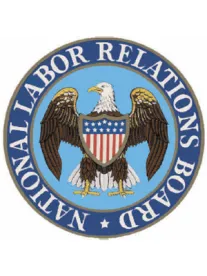Colleges and universities contending that their tenured and tenure-track faculty are managerial employees who do not have the right to unionize or bargain collectively under the National Labor Relations Act should find reassurance in a recent National Labor Relations Board Regional Director’s decision declining to assert jurisdiction over a Catholic liberal arts college. Carroll College, Case 19-RC-165133 (Jan. 19, 2016).
The decision also provides guidance about how religiously-affiliated schools can demonstrate that the NLRB should not assert jurisdiction over their operations at all. The Regional Director based his decision on the NLRB’s Pacific Lutheran University, 361 NLRB No. 157 (Dec. 16, 2014).
Pacific Lutheran University Managerial Employee Test
In Pacific Lutheran University, the Board decided it “will examine the faculty’s participation in the following areas of decision making: academic programs, enrollment management, finances, academic policy, and personnel policies and decisions, giving greater weight to the first three areas than the last two areas.” The Board considers the first three areas of decision making (academic programs, enrollment management, and finances) to be primary because they affect universities as a whole, and considers the last two areas of decision making (academic policy and personnel policies and decisions) secondary because they do not affect universities as a whole. After examining the faculty’s participation in these decision making areas, the Board determines “in the context of the university’s decision making structure and the nature of the faculty’s employment relationship with the university, whether the faculty actually control or make effective recommendation over those areas.” If they do, the faculty are managerial employees, excluded from the Act’s protections.
PLU’s Managerial Status Test Applied
The Regional Director’s finding that the College’s tenured and tenure-track faculty are managerial employees has broad application to all private colleges and universities because such employees may not have rights to unionize under the NLRA.
The Regional Director found the College established that the petitioned-for faculty exercised managerial authority with regard to academic programs, academic policy, and personnel policy and decisions. While noting Pacific Lutheran University did not explain clearly which types or numbers of factors a party must prove to meet its burden, the Regional Director found the weight of the evidence presented by the College established that the petitioned-for faculty were managers.
Decision Making in Connection with Academic Programs
The Regional Director pointed to the following evidence as supporting the petitioned-for faculty’s managerial control with regard to academic programs:
-
through relevant committees and the Faculty Assembly, faculty made decisions involving the College’s curricula, major, minor, and certificate offerings, and the requirements for completing those offerings;
-
the Curriculum Committee, 50 percent of which were petitioned-for faculty, exercised primary authority over curricula, major, minor, and certificate offerings;
-
the Curriculum Committee also had the authority to add, and had added, certificate programs to the College’s offerings with approval only by the Faculty Assembly, without needing further approval by the College’s Board; and
-
the Core Committee, a majority of which were petitioned-for faculty, approved courses and made recommendations for changes regarding the core curriculum required of all students at the College, of which only major changes required approval by the Faculty Assembly or the College’s Board.
Decision Making in Connection with Academic Policy
The Regional Director found the following to be evidence that the petitioned-for faculty exercised decision making authority in the area of academic policy:
-
they made decisions regarding teaching and research methods and grading, academic integrity, syllabus, research, and course content policies;
-
the Faculty Handbook, which had to be approved by the Faculty Assembly as well as the College’s Board, governed the broader protocol for the decision-making areas under academic policy;
-
the Curriculum Committee, 50 percent of which was petitioned-for faculty, “handled” the College’s syllabus policy;
-
the petitioned-for faculty-majority Institutional Review Board, with almost no administrative oversight, reviewed faculty research methods and ensured that research that may involve human participants was conducted in an ethical and moral manner, thus dictating research methods; and
-
the Policy Committee, although consisting of a minority of faculty members, makes major recommendations that the Assembly, which is vast majority faculty, must approve — most notably, the attendance policy, the academic integrity policy, and the waiver of core requirements for students already in possession of the bachelor’s degree.
Decision Making in Connection with Personnel Policies and Decisions
The Regional Director found the following to be evidence that the petitioned-for faculty exercised decision-making authority in the secondary area of personnel policy and decisions:
-
department-level committees made up of petitioned-for faculty served as the primary mechanism for hiring new faculty;
-
petitioned-for faculty also exercised significant control over the hiring and termination of adjuncts and could elect not to renew adjunct contracts without approval or oversight from the College;
-
the overwhelming authority of the faculty-majority Rank and Tenure Committee over evaluation and tenure decisions — the majority of the Committee’s recommendations were followed by the College’s President and Board with no independent review by the President; and
-
the faculty-majority Faculty Development Committee made decisions regarding sabbaticals for petitioned-for faculty that the President adopts pro forma, without any independent review.
Structure of Decision Making at the College Favored Finding of Managerial Status
The Regional Director found the decision making structure at the College favored a finding of managerial status for the petitioned-for faculty. In reaching that determination, the Regional Director found it significant that the petitioned-for faculty were only tenured and tenure-track faculty, not adjunct or contingent faculty. The Regional Director also noted that the petitioned-for faculty participated in committees and the Faculty Assembly, which played a crucial role in the College’s decision-making structure, and that the nature of this role was codified in the Faculty Handbook, which was a governing document over whose content petitioned-for faculty also exercised some control.
PLU Religious Exemption Test
In PLU, the NLRB explained that in order for a religiously-affiliated college or university to argue successfully that the NLRB should not assert jurisdiction over it, the school:
must first demonstrate, as a threshold requirement, that First Amendment concerns are implicated by showing that it holds itself out as providing a religious educational environment. Once that threshold requirement is met, the university must then show that it holds out the petitioned-for faculty members themselves as performing a specific role in creating or maintaining the college or university’s religious educational environment, as demonstrated by its representations to current or potential students and faculty members, and the community at large.
PLU Test for Exercising Jurisdiction Over Religiously-Affiliated Universities Applied
In Carroll College, the union and the College stipulated, and the Regional Director found, that the College held itself out as providing a religious educational environment. After making this threshold finding, the Regional Director found the College did not generally hold out the petitioned-for faculty as performing a specific religious function. Nonetheless, the Regional Director found the College met its burden to establish this prong because the College’s Faculty Handbook provided that one of the four reasons a faculty member’s employment may be terminated for cause was “continued serious disrespect or disregard for the Catholic character or mission” of the College. The Regional Director declined to exercise jurisdiction.
The Regional Director noted, “Although the evidence in the record is minimal to show that the College has ever discharged a faculty member for [serious disrespect or disregard for the Catholic character or mission of the College], that is irrelevant…as the [NLRB] will not ‘look behind’ publicly available documents, such as the [Faculty] Handbook, to assess the College’s actual practice.” Citing language from PLU in which the NLRB stated it would decline jurisdiction “so long as the university’s public representations indicated that faculty members were expected to comply with (or at least not openly contravene) certain tenets of a religion as a term and condition of employment,” the Regional Director found the Faculty Handbook provision sufficient to establish that the petitioned-for faculty perform a specific religious function. This was the only term and condition of employment that established the College’s Catholic nature played a role in hiring, evaluation or tenure.
The Regional Director also rejected the College’s argument that the Religious Freedom Restoration Act precluded the NLRB from asserting jurisdiction over the College.
***
The union may file a request with the NLRB to review the Regional Director’s decision in this case. In the meantime, all private colleges and universities should review the nature of the participation of faculty in the decision-making process in connection with academic programs, academic policy, and personnel policy and decisions. The Regional Director’s decision identifies specific faculty rights in these areas that caused him to conclude they are managers. In addition, religiously-affiliated schools should review the termination provisions of their faculty handbooks and related governance documents and contracts to determine whether they include language similar to that the Regional Director relied upon to conclude that Carroll College holds out its faculty as performing a specific religious function.






 />i
/>i

